Fare Thee Well To The Phil Zone
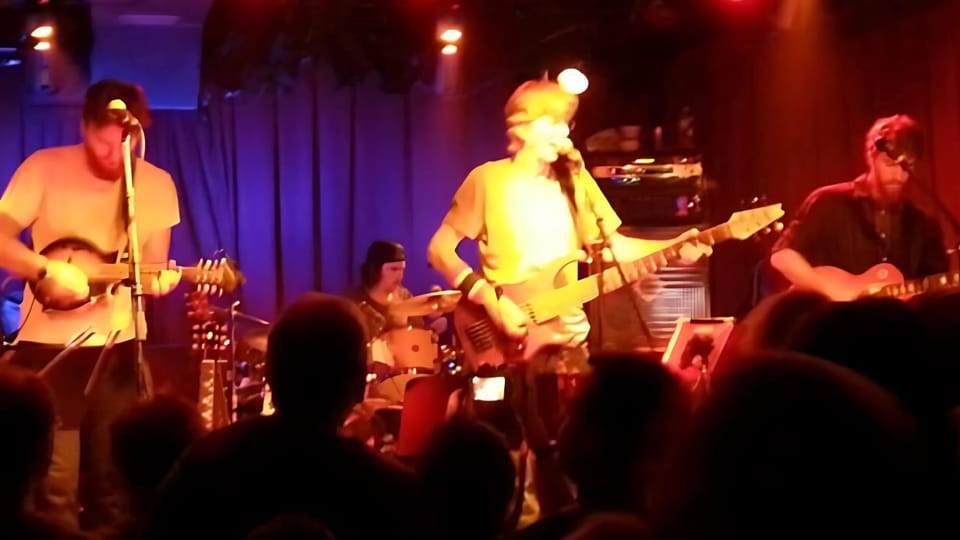
Grateful Dead bassist Phil Lesh is gone.
He was 84.
A life certainly well lived.
The news of his passing seemed like staring at my own mortality.
The world moves on, yet when you were in the Phil Zone, there’s this stillness. Phil’s music, his presence, never just thumped along to keep a beat. It existed beyond sound, in the ether. A secret we leaned into, something slipping out of reach if we didn’t listen close enough. It was low-frequency texture, not garnish. It was something your ears tracked—like your head following an aural tennis volley on center court, at Grand Slam speed.
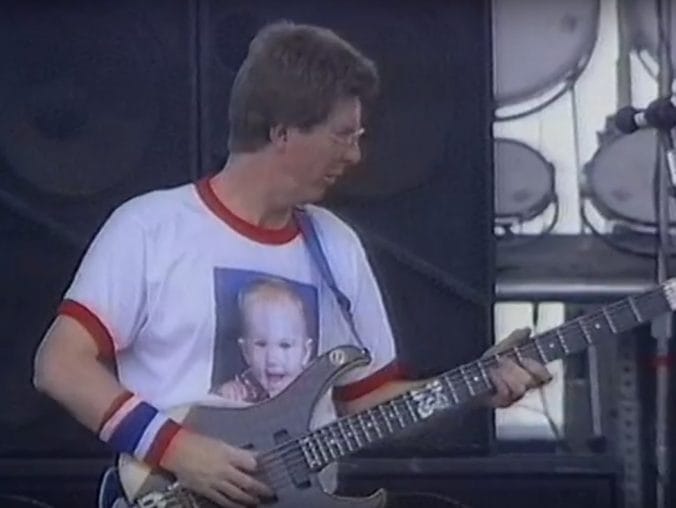
Processing Phil’s passing got me thinking about how his work—and the band itself—is more than just music. I hate even writing that phrase "more than music" because the greatest artists are, of course, more than their art. It feels hack, especially in Deadhead speak: community, oneness, shared experiences, all that hippie pseudo-theology that’s both real and a little annoying. You know when art is the good stuff if it releases feel-good brain chemicals and how it kindles a sense of belong.
But there's something deeper, almost an existential spectrum to being a Deadhead. It’s grief tangled with joy, as wide-open, complex, and tormented as America itself. Community is great and all, but what I love the most about the Dead is how small it makes me feel, like a door to infinity. That is the Dead experience I care mostly about. Rugged individualism in ballast with a group goal. A musical hire wire act.
Mortality and loss are baked into the Dead’s music—hell, it’s right there in the name, the good ole Grateful Dead. Emphasis on dead. It’s always been about being here and then not. Almost six decades of the band’s history are marked by waves of loss and renewal. People and sound that fades but still echoes, lingering as memory, sometimes just as audiation—one of my favorite ideas about music. It's a term my Dad taught me about back in the day. Audiation is the music your brain thinks up for itself when there’s none to be heard. It's the foundation of music - how it exists in the gooey mass in our skulls before our nerves and muscles put it in motion. Physics does the work from there, turning that music into gratifying waveforms for ears to hear and brains to process.
The core four felt timeless. They felt like they’d last forever. But nothing does.
As a kid, I didn’t grasp it. Back in elementary school, my babysitter’s son had a Deadhead stealie blacklight poster in the family's basement—a symbol with a strange, magnetic pull. It was cryptic, like some exotic talisman in a jungle temple. A brand like Mercedes or Coca-Cola with its cultural ubiquitousness, sure, but the ancient skull felt like it had a gravitational heft. Symbols are important in how they're interpreted, especially when at that age.
Then Jerry died when I was ten. I remember seeing it on the TODAY show that August morning, probably over a bowl of sugary cereal in my parents’ kitchen. I almost want to say it was a nice day outside—sunny, crisp—but memory’s tricky like that. My parents weren’t Deadheads, but as music teachers and children of the 70s, I think they got it—his place in the culture. His beard. His huge laugh. His commitment to musicianship. His endearingness. And there I was, just a kid, watching the adults around me try to make sense of it all. Druggie? Genius? Maybe both? It’s hard to unravel the complexities of human nature at that age, when the world still feels so binary.
That summer of ’95, I think the media coverage of the Deer Creek gatecrashing and Jerry’s death dripped itself into my subconscious. I think seeing these events on TV or discussed made me morbidly curious, pulled me into their world, into the music and who they were.
Everyone has an origin story with the music. The Grateful Dead were symbols and cultural phantoms to me before I understood they were people and music. And here’s the thing about getting into the Dead—it’s a lifelong pursuit. Stuff stays with you throughout your own personal chapters. You don't even have to seek it at a certain point. It just finds you. There’s always another layer of the onion to peel back. There’s the grief of losing a member, the rebirth of new groups taking the music to new corners, new fans, a nuance in a jam from 40 years ago or personal discovery. It keeps you on your toes.
Now, as an adult, I feel it all—loss, nostalgia, the weight of years stacked up as memories. I felt it when Grateful Dead lyricist Robert Hunter passed. And when lyricist John Perry Barlow passed. And now, especially with Phil's passing.
Last night, scrolling through Instagram during a World Series commercial, I revisited a clip from Freaks and Geeks. That scene Judd Apatow wrote, set in 1981, where Lindsey Weir learns about the Dead from her longhaired guidance counselor, right as she starts drifting from her college-bound path. From that moment, she’s “on the bus,” fully drawn in. Few scenes have ever nailed the Dead as a lifestyle, an ethos, quite like that one. Watching it, I thought of Phil and how many others have shared that same “aha!” moment, that mystical third eye opening—and getting on a bus they’re happy to never get off because of the music these Bay Area disobeys dreamed, lived, and shared. I'm not too proud to admit it made me misty-eyed.
I think of my own strange trip with the music. The first scratched-up CD of American Beauty that somehow made its way into my collection. I don't remember who gave it to me, and I don't recall buying it. Buying Dick’s Picks 3 from Harpur College and hearing that Dead magic for the first time. Music the cool college-age older brothers and sisters liked because all the older brothers and sisters before them liked it, for three solid generations. My first stereo, music flooding the basement late on a Friday night in 8th grade. My first Phil and Friends show at Hershey Park with my buddy Corey, a kid in high school sweatbands, starting to see the legacy I was stepping into and enthusiastically learning about at that age when you absorb these experiences like a sponge.
Another core memory: College, 2008, the Dead Change Rocks reunion at Penn State, right before the election. I had a press pass from the Obama campaign and an assignment to cover it for a little alt-monthly newspaper in Centre County, Pennsylvania. It seemed productive and prudent to align my interests (ie: the Grateful Dead) with what I wanted to do in life (write). I didn’t know where I fit in this world. So I did what I knew: Figured out how to wiggle my way into writing about it. Phil ripped that show. Once again, the bigness of that Grateful Dead sound was humbling.
Furthur. The Q. And then, August 2013 in New York City.
Phil and his wife, Jill, had a place on Prince Street, right near the BroBible office on Broadway. You’d spot him around the neighborhood now and then, grabbing a coffee or a sandwich. Furthur was still touring, and in the summer of 2013, Pete Shapiro was on the verge of reopening the Capitol Theatre. Dead 50 was just an idea.
Word on the street was that Phil wanted something close to home, a gig he could walk to. No planes, buses, or hotels. So, in August 2013, Phil and his sons brought Phil and the Terrapin Family Band to Sullivan Hall, a cozy spot in the Village, just blocks from his apartment. A little east coast debut, right in our backyard.
I wasn’t going to miss it.
Sullivan Hall was a 350-capacity spot, just down from Cafe Wha?, the Blue Note, the old Village Gate—all those iconic New York live music spots that earned a mention in American music history. The place sold out in a blink. I thought I’d missed my chance, so close yet so far. But then, through the magic of the Internet, I stumbled on two extra tickets—some fellow Deadhead on Twitter or Craigslist who worked a couple blocks away.
I snuck out of our office blog content farm to wander, as I was prone to do, and we met up that afternoon, right on the corner of Crosby Street, on the steps of what’s now an Equinox.
I miracled my extra to a grateful Deadhead coworker on the ad sales team. Brownie points for making sure BroBible stayed on media plans. We logged off for the day, cracked some free beers in the office, ordered some food, and wandered over to the show.
We were right there, in the Phil Zone, in an intimate club where you practically leaned into the music, feeling those Phil bombs thump into your chest, close enough to see Phil’s sweat and smile and trademark neck-pecking gestures—pure joy playing with his sons, maybe because he knew he could stroll home in minutes.
Phil and the Terrapin Family Band sound was folksy yet spirited, with mandolin and pedal steel. A nice homespun interpretation of the Dead songbook. And then, that night, they played The Wheel towards the end of the show, with that live pedal steel melting its way into the room. The way that group played it that night! I just fell so head and heels in love with that song all over again. It’s still a favorite. It was like hearing it for the first time.
Just one of those New York City nights, completely unforgettable. It's stuck with me over the years. It was my favorite experience in the Phil Zone. I saw Phil with the band two times after that, but it was missing the same intimacy as that night in Sullivan Hall. I walked back to my place in the East Village with a deeper connection to the music than ever.
I snapped these two grainy photos.
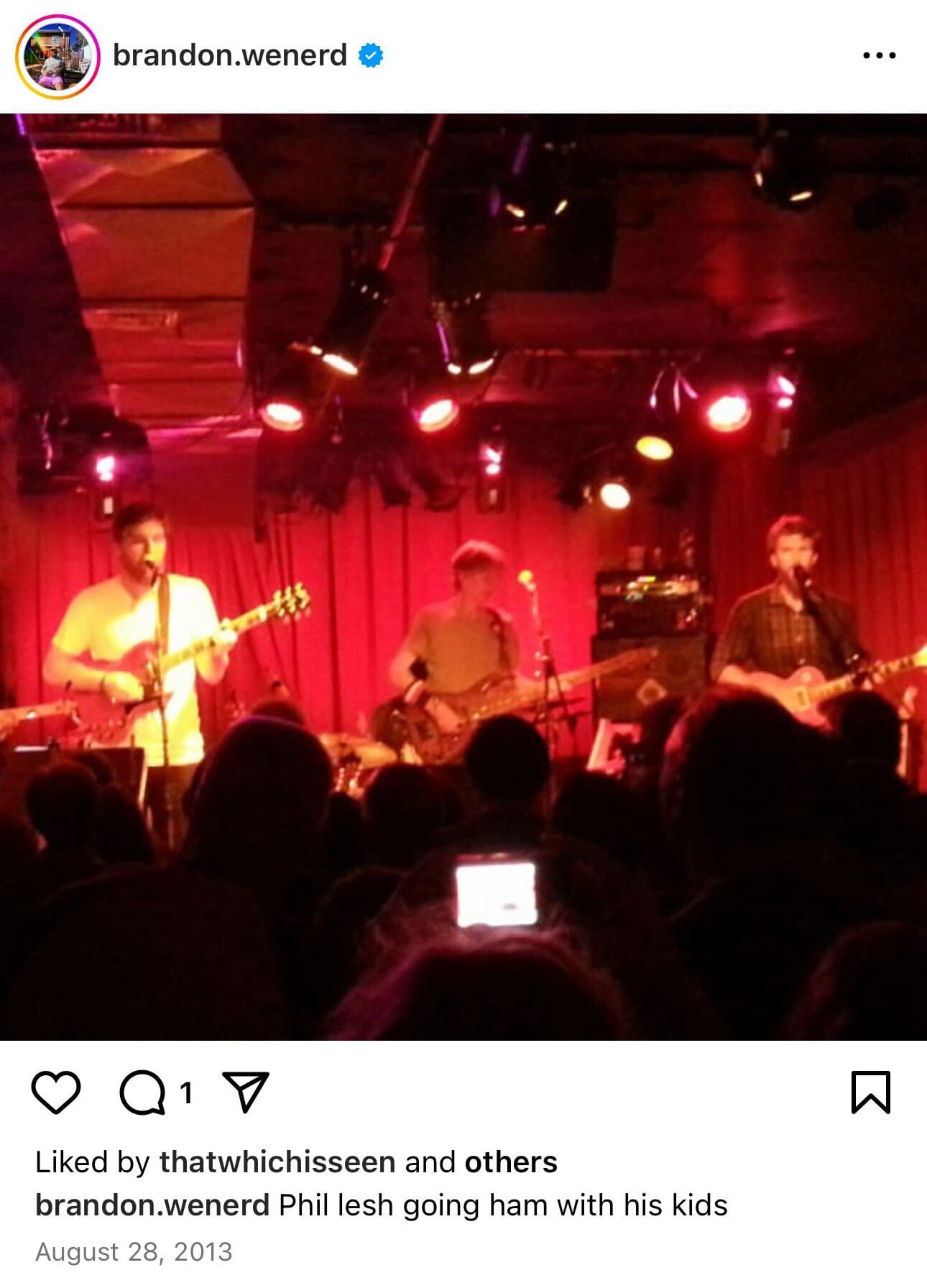
I posted them on Instagram, back when it was just a space for blurry memories, for nights us idiot broke millennials never quite captured right. No one had any idea what the platform was supposed to be, except “the future.” Oh it's the future all right. These were some of my very first posts—snapshots of that night, still there, holding all the nostalgia they’re worth.
They look like artifacts now.
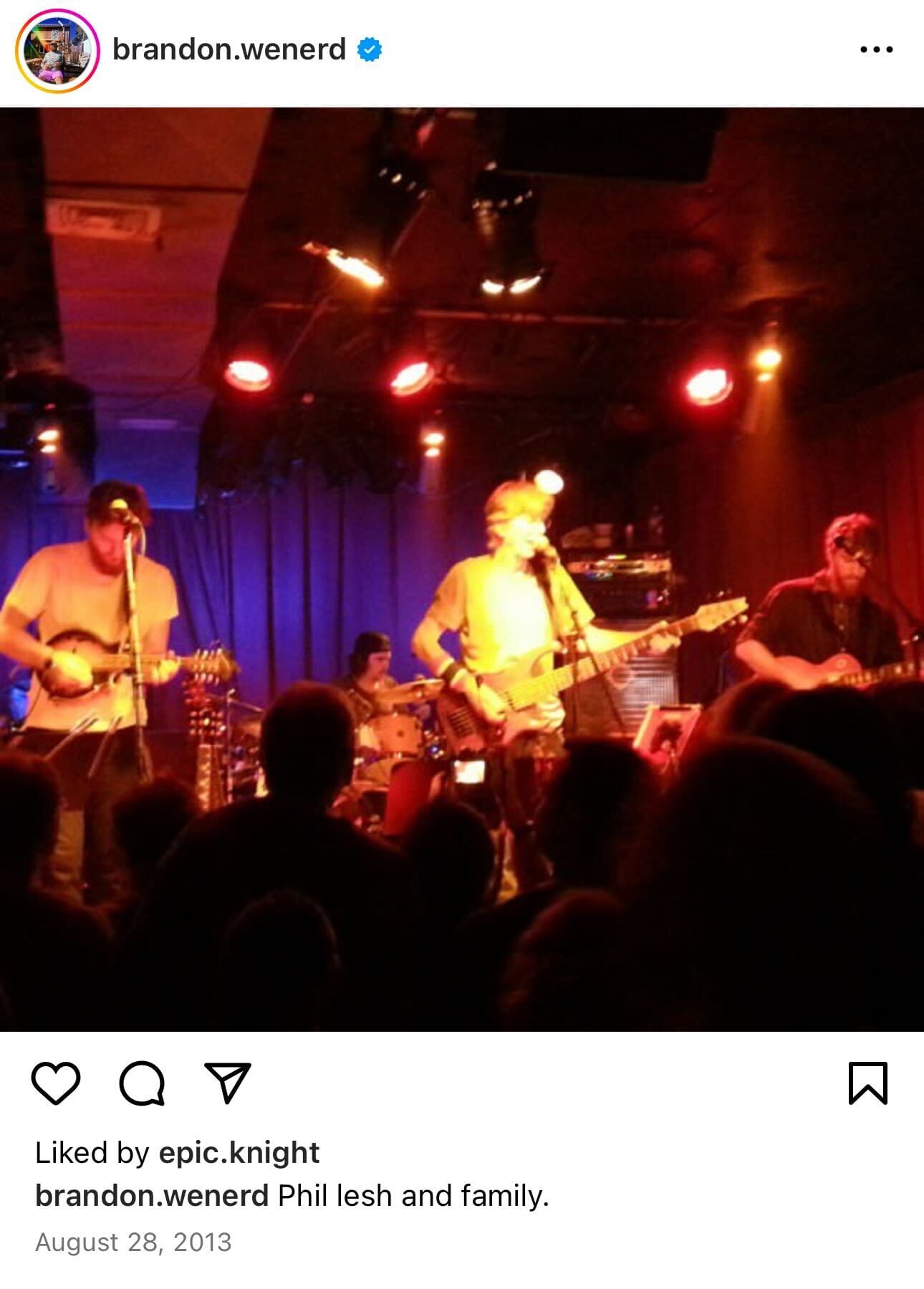
It’s so bittersweet to revisit them today, in Phil's memory. There he is, searching for sound, enraptured in that hunt.
So long, Phil. Thanks. I'm bummed your gone, but I'm grateful you paid this world a visit. For the music and memories.
It is such a long, long time to be gone, and such a short time to be there.
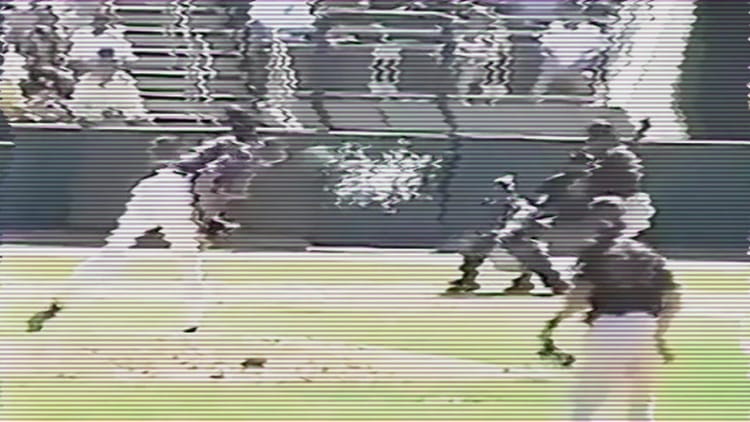
Member discussion